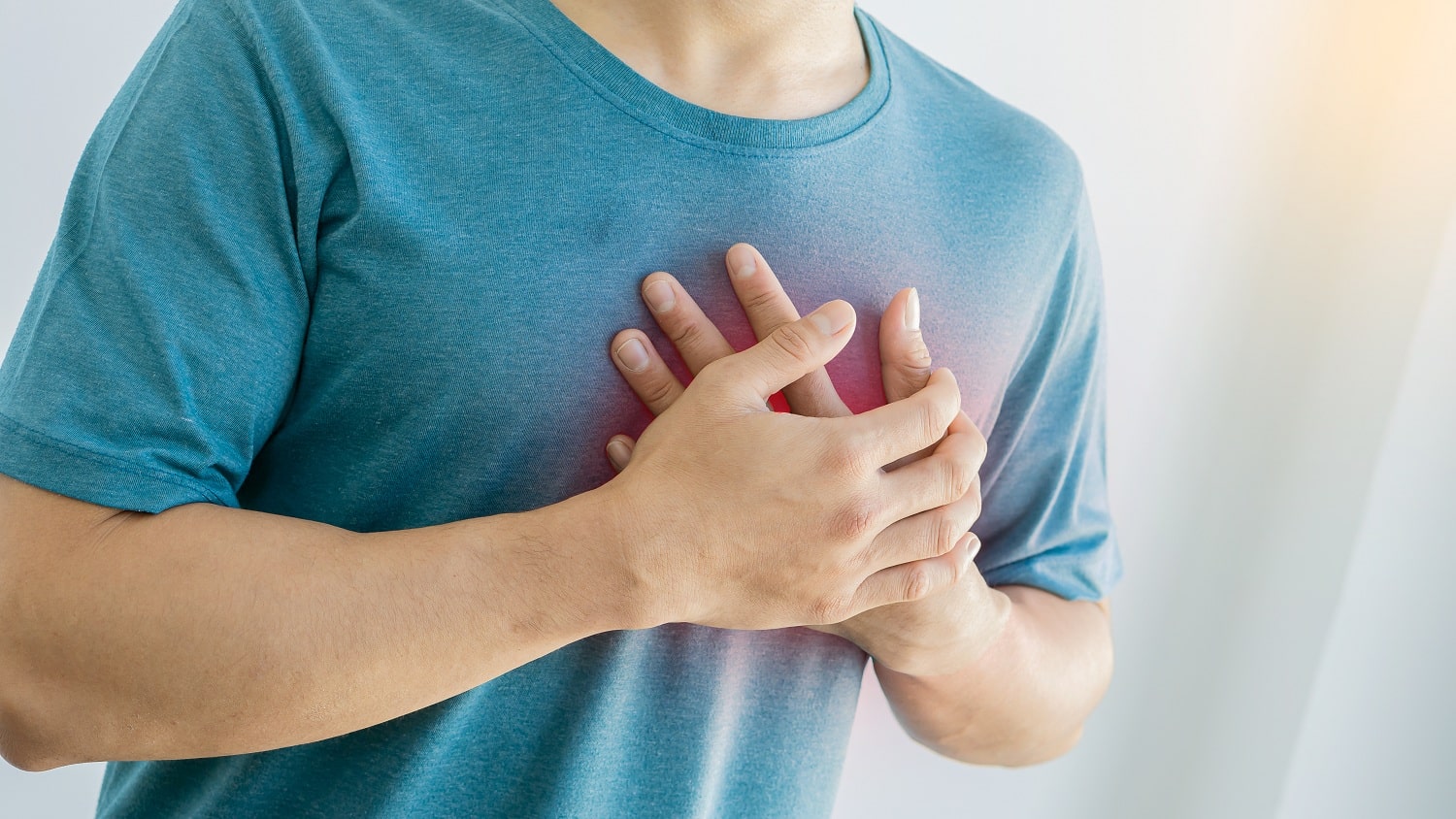Chest pain is a common symptom that affects between 20 and 40% of the general population during their life. As such, it is not entirely unusual to feel pains in your chest, for a number of reasons. There are many possible chest pain causes, some of which indicate an immediate threat whilst others may result from injury, chronic conditions, or something less serious altogether.
This article will explore what you should do if you experience chest pain.
What Causes Chest Pain?
Chest pain causes can be related to injury, lung or heart conditions, digestive problems, or even mental strain, like stress, anxiety or a panic attacks.
Here are a few common causes:
- Angina: This indicates chest pain caused by reduced blood flow to the heart muscle
- Chest wall pain: This is a type of muscle pain resulting from bruised chest muscles, for example, after strain, minor injury or excessive coughing. A broken rib can also cause pain in the chest area.
- Digestive problems: Including an ulcer, gallstones, gastritis, or gastroesophageal reflux disease
- Cancers involving different structures in the chest
- Lung problems: for example, pulmonary embolisms, pneumonia, pleurisy, etc.
What to Do When You Experience Chest Pain
Chest pain should never be ignored. If you experience sudden chest pain that lasts longer than five minutes, even after you’ve taken medication or rested, seek immediate medical attention, and get to the closest A&E as soon as possible. If your chest pain is accompanied by nausea, fainting, shortness of breath or blue lips and fingers, you might be suffering a heart attack.
You may chew on aspirin to act as a blood thinner. This can prevent clotting and keep blood flowing through narrowed arteries. However, steer clear of aspirin if your chest pain is due to injury or if you are allergic or take other blood-thinning medication.
If chest pain frequently arises due to exertion or stress, you might be suffering from a chronic condition. In that case, make an appointment with your cardiologist to discuss possible causes and treatments.
Preventing Chest Pain
Depending on your chest pain causes, you may reduce the frequency of symptoms by following a healthier lifestyle. This includes:
- Exercising regularly
- Reaching and maintaining a healthy weight if you are obese
- Limiting your alcohol usage
- Avoiding tobacco/nicotine products and smoking
- Eating a healthy diet
- Managing existing conditions and following your Doctor’s treatment plan.
If you’re concerned about your heart health and suffer from chest pain, it may be time to discuss ways to alleviate your symptoms and gain peace of mind. Get in touch with Venturi Cardiology for an appointment. Our consultations can provide quick answers to many common questions regarding heart health.












